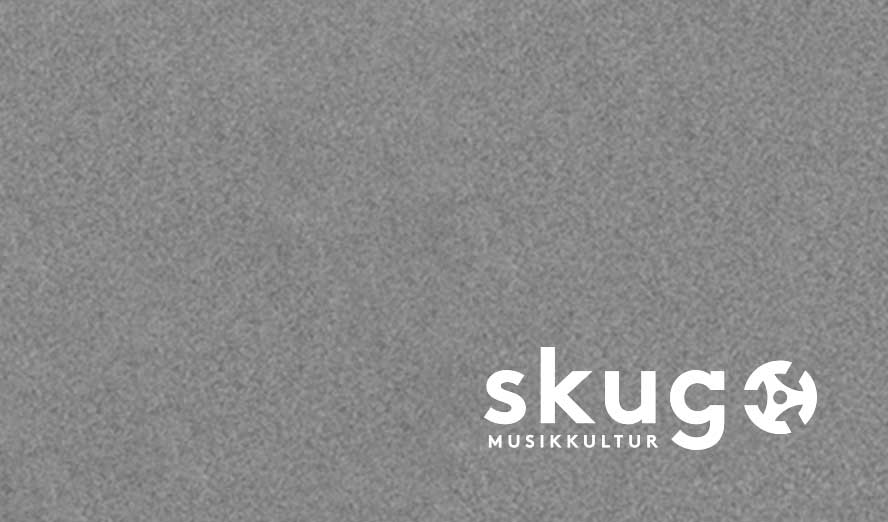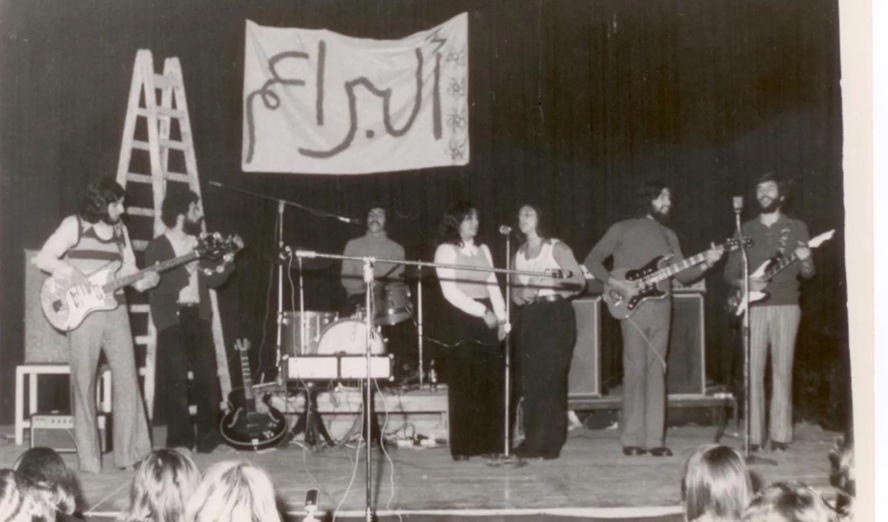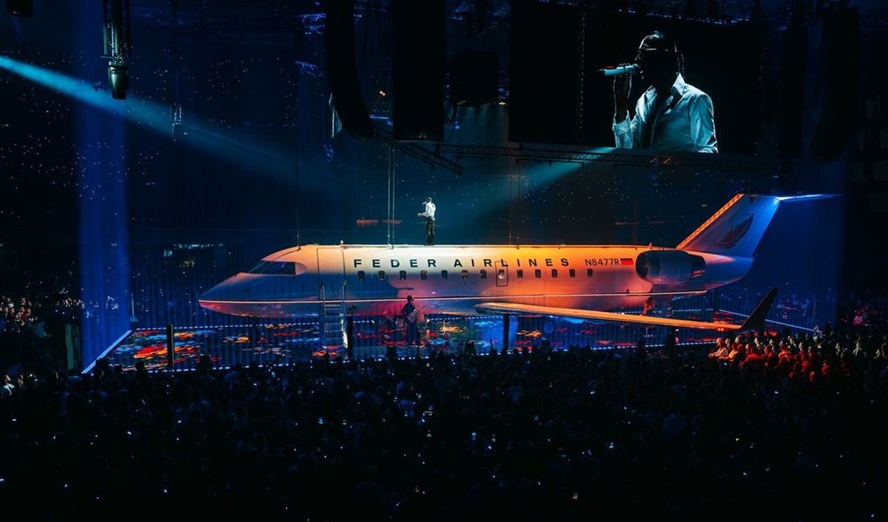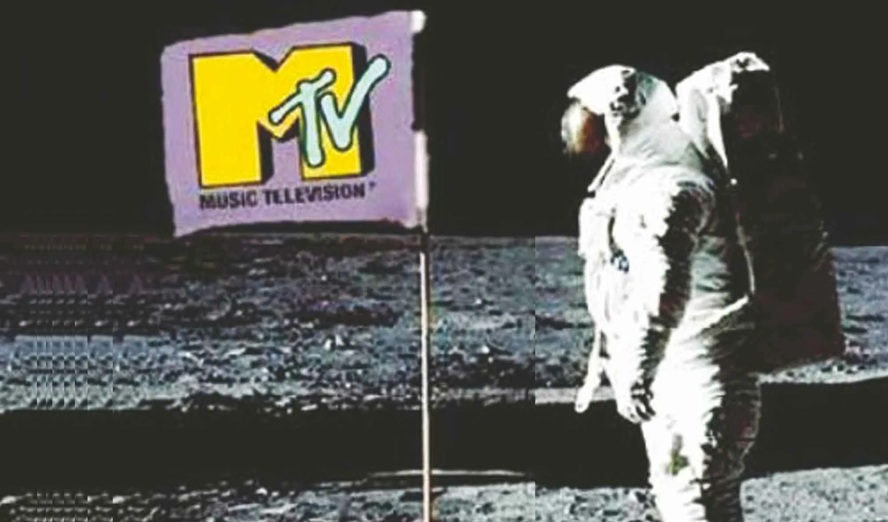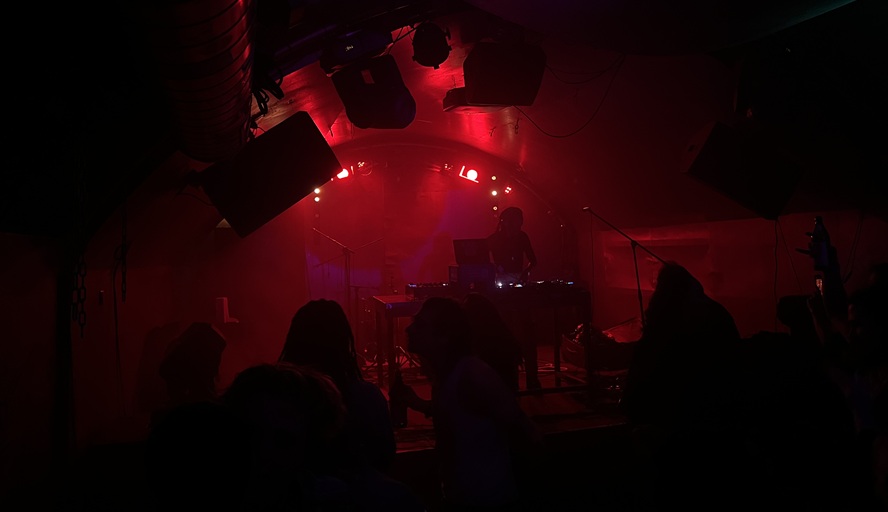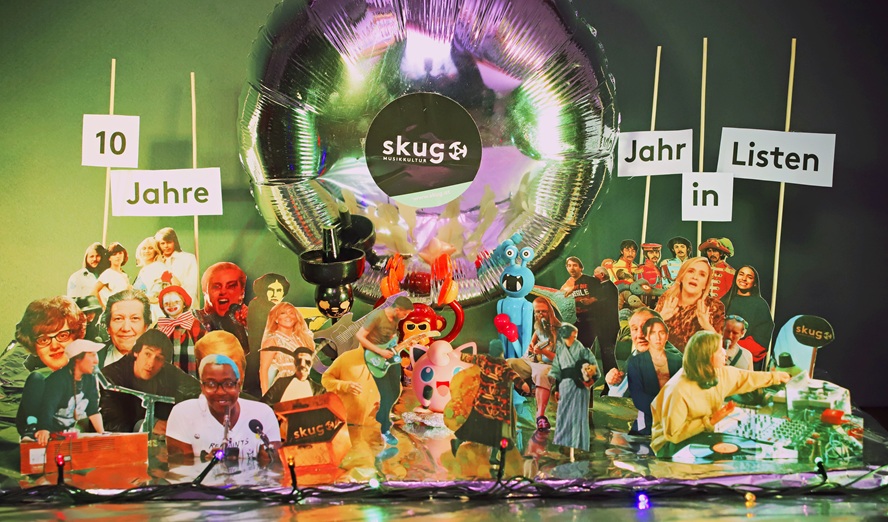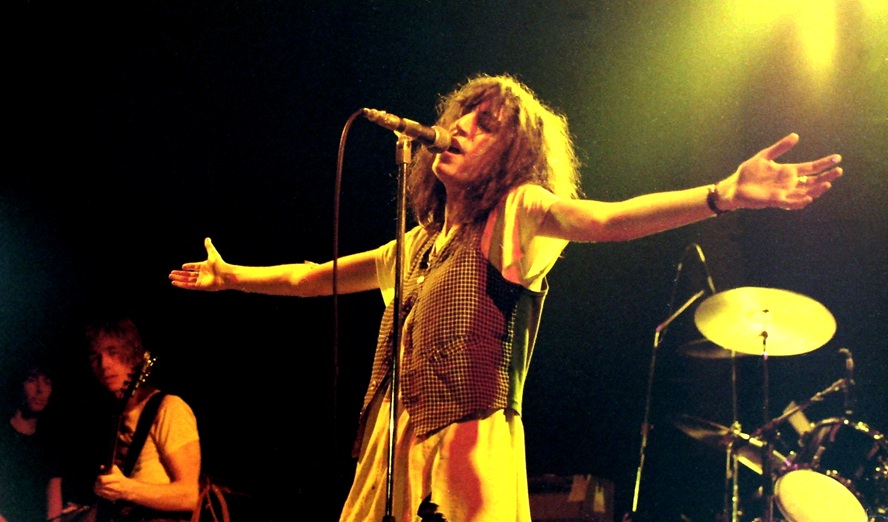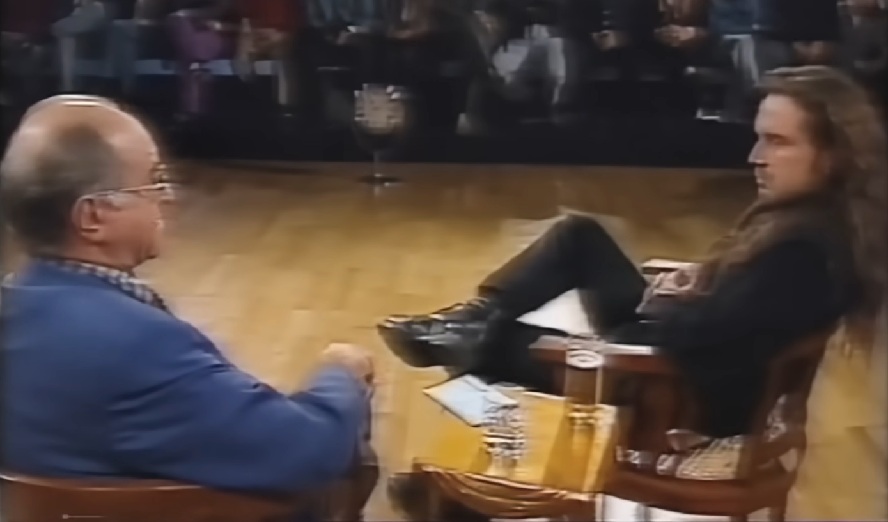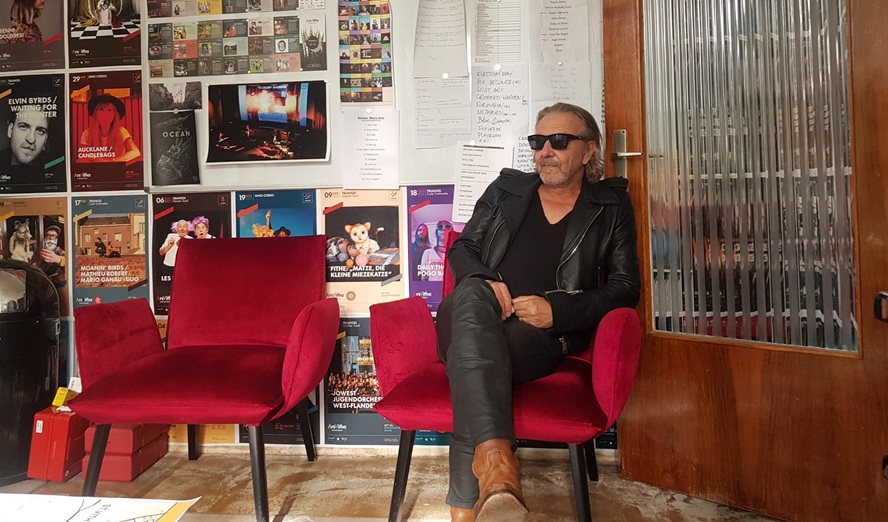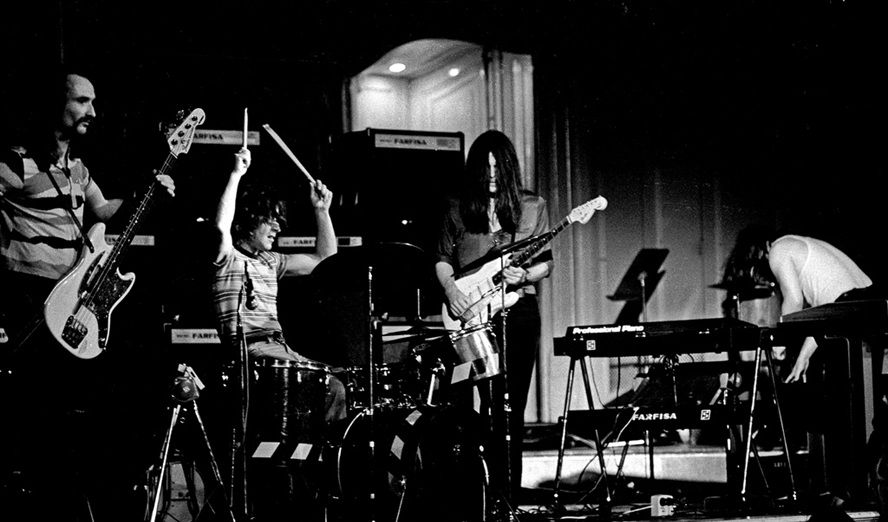After the success of their last album »We Free Again« at the end of 2004, the young Californians now come back with a sixth album called »Upon The Bridge«. It’s a really nice album still full of Jazz and Dub influences due to the musical education of those musicians. Indeed, the four builders of the band have known each other at the university in California where they were all studying Jazz. The respect of their Jamaican Elders for their music is one more time proved by the presence on this album of two huge Reggae stars of the 70’s: Pablo Moses and Ijahman Levy (Jah Heavy Load). On the occasion of the release of this new album, Harrison Stafford, the singer of the band, has accepted to answer to some of our questions.
First let’s talk about this new album … Why did you call this album »Upon The Bridge«, what is the real meaning of this name?
Harrison: Most of the time the album’s name is the final thing we cement. I can remember our visual artist Giovanni Maki waiting with the finished Gate and mocked-up cover anxiously awaiting the name to put in, and finally »Hebron Gate« was born. However, »Upon The Bridge« was different. We had the name long before the album’s completion. Most of the track’s lyrics had this theme of crossing a bridge and even the album’s packaging includes a short story based on the lyrics so there is literally a telling of a story which takes place within the text. It is really an ongoing story which began with our first album »Young Tree«. It’s the development of the self, the individual and their struggle with what they see around them and what they feel within them. »Upon The Bridge« is today, 2006. I think everyone in the world feels this heavy burden, this need to change our way of life if we are to see a solid future for our children and the coming generations. So here we are upon a bridge, not on solid ground. Also we as Groundation, the musicians travel this world spreading this thought, this consciousness and we are finding good people everywhere who feel the same things we do. We no longer live in California, our family, friends, and homes might be here, but we are really bridging these like-minded people of the world.
Your compositions are still full of Dub bridges and in last February you released an album called »Dub Wars« gathering some Dub versions of the best tracks from your previous albums »Hebron Gate« and »We Free Again«. Could you explain us your interest in this type of music? Is it because Dub opens you the doors of improvisation?
Harrison: I have loved and greatly admired Dub music all my life. Of course I am excited by the fact that the engineer has now become a musician and through their »performance« of the song they are able to stretch the original recording into a whole new space. Our Dub release is very unique because Marcus Urani (Keyboards) has taken the dub arrangements which we\’ve compiled from Jim Fox\’s (engineer) master versions and Marcus then puts on his engineering hat and makes a few passes of his own improvised dub. He is able to record and recall all of his versions and then can freely pick between all the versions to create one master that is fully constructed and composed as a seem-less composition, something we’ve called the »Double Dub«.
Once more this album sounds a little bit jazzy. For you, how does your Jazz education influence your Reggae music the more?
Harrison: This education has influence us heavily and the fact that we’ve spent so much of our lives immersed in music these »advanced« concepts come out of our writing of songs, our collective improvising, and our general approach to music making which gives our music a very fresh and special sound. Since we’ve all grown together in our musical evolution through University and beyond the musicians of Groundation share a special bond. We’ve spent (and continue to spend) a great deal of time practicing and studying our art. The fact that we’ve all received a serious education in the theory of music gives us (if nothing else) a way of communicating our thoughts to allow our fellow musicians to fully understand and perform with accuracy difficult arrangements. It gives us a common language of which to share our ideas. These ideas might take another group months and months to perform, with our common language we say what we want, all musicians agree and perform it as such.
We are not consciously attempting to meld the genres of Jazz and Reggae. We are simply on a self discovery path and our goal is new and original music. Because we’ve walked and lived our lives our road has lead us here. It\’s not about odd time signatures or advance »Jazz« harmony, it’s about finding yourself and making the music you love.
How did your connexion with Pablo Moses happen? We hadn’t heard him for so many years … Was it thanks to his album »Pave the way« that has recently been remastered by your producer Jim Fox and re-released (+ exclusive dub versions of the tracks) by your label Young Tree Records? And what about I Jah Man? Did you know him before?
Harrison: I had know Pablo Moses for sometime and have had a good close relationship with him. However it wasn’t until we were talking on the phone about music and the work when I asked him about Pave the Way. I said »What ever happen to that great album? I had it on vinyl, but never saw it on cassette or CD.« He said that he had the original nine 1/4" master reels sitting next to him. I was extremely surprised and immediately wanted to move forward on the possibility or a remaster on CD. We worked very hard on that project and both Pablo and I are very satisfied with the results. I am particularly pleased because Pave The Way was a huge album for me growing up.
I had never met in person IJahman until a few months ago in front of Harry J’s. That’s the studio in Kingston we used for the recording of »Upon The Bridge« in Jamaica. Something must have been in the water there in JA during the 1970’s because that small island has produced some of the most naturally gifted singers the world has ever heard. Ijahman and Pablo are among these legendary vocalists. These two guest vocalists on Upon The Bridge have touched my soul deeply from the first moments I heard their voices. I cannot begin to put into words the feelings I had within me during those sessions, one of my life’s truly great moments … I am thankful that these musicians are still »here« (in every sense of the word).
Now let’s talk about you Harrison … Do you remember the first time you heard Reggae music? Do you remember the name of the song or the artist?
Harrison: I remember Bob Marley … I remember Peter Tosh … I remember Cutlure. Specifically the albums »Rastaman Vibration«, »Equal Rights«, and »Nuff Crisis«. I just remember the music, being very young. I didn’t know why I liked it so much … I couldn’t explain it if someone were to ask. It just felt right.
As a californian whiteman, why did you decide to sing in jamaican patois?
Harrison: I’m not sure if I did decide to sing in patois, it just seems to be what comes out of me when I sing. I suppose that on some level I am conscious of it, but it does not enter into my thoughts ever while I\’m singing. Patois top me is like poetry. It has a rhythm, a rhyme, a vibe. I also speak in patois from time to time in Jamaica, on the phone to friends from Jamaica, it even comes out sometimes in certain situations and those individuals usually get this strange look on their face and ask »what?« All of my friends and people who have known me throughout the years traveling to Jamaica consider it to be who I am. They say that I’m not from California, but I am Jamaican. At this point patois to me is the way music and singing sounds. From my very first attempts at singing it has been reggae, Jamaican Patois. I think the people know that there is no joke involved. When I wail to Jah I wail in a tongue a tribute to the highest
heights, it is no longer me.
Which are the reasons that led you to Jamaica? How did you go there on the first time?
Harrison: Jamaica and Reggae was always a source for me. It was my parents who introduced me to a family in Jamaica with a son my age Leighton Lugg and we struck up a close friendship immediately. I had stayed with he and his family in St. Ann’s Bay (Charles Town) and meet all the kids our age and soon we were all a part of each-others lives. I would spend summers and winters in Jamaica. I would see good people grow up, new ones born, close friends pass on. I played Guitar at the Baptist Church in St. Ann’s Bay.
Can you describe us the Reggae scene in California? Is the audience there more attracted by Foundation Roots Reggae played with instruments or Dancehall and Sound Systems?Harrison: We have a good mixture of roots reggae performed with live instruments along with dancehall spinning at sound systems throughout the California Bay Area. Just down the street in Sebastopol we have sound systems spinning roots to dancehall Mondays and Saturdays. I would say that for reggae in the USA there is no better place than California.
I have read that you have teached Reggae History at the University. Have you heard about the »Book of Memory, a Rastafari testimony" written in patois by Rasta Elder Prince Elijah Williams? If not it’s a really nice book, you should read it …
Harrison: You are now the third person to have mentioned this book. I have not found a copy in print here in California, but when I find one I will read it … thank you.
Lots of jamaican artists have already sung on your albums (Don Carlos, Marcia Higgs, Ras Michael, Apple Gabriel, Cedric »Congo« Myton and now Pablo Moses et I Jahman), are there still one or many jamaican singers that you would like to feature on your next albums, a childhood dream?
Harrison: We have many plans for the future, many ideas that will take great time and concentration to achieve. The album ideas are well beyond the present moment. I had hoped to confront the reggae world without any apology. An album featuring Culture’s Joseph Hill and the great Burning Spear where those thoughts … Joseph Hill was a good friend and teacher to me, I miss him very much. I guess that was a childhood dream.
However, the future is bright and what will be will be.
I read somewhere that you had been in Jamaica with Mortimmer Planno, Bob Marley’s mentor and spiritual adviser ,but also that you had known Joe Higgs, his singing professor, before he passed away. What did you learn from them?
Harrison: Wow, yes those were powerful times in my life. Planno, Higgs, Hill … all gone. More names to add to the endless flow, we also lost Ras Pidow a few years back. These are elders, teachers.
In the case of Joe Higgs, he gave his life to Jamaican and it’s music, he was no big famous man. Joe Higgs embraced his role with all his heart. The list of musicians and harmony trios which owe their careers to Joe Higgs is very long. He told me to fight all I can, the reward shall be great. This is no physical reward, but a reward of great spiritual strength that will last throughout the ages, no possession can grant you this fulfillment.
Planno was a very focused person who did not like to be taken for a ride. I can remember in Porus Jamaica listening to this great elder speak about the African struggle and a need for world alliance under the banner of Red, Gold, and Green, RasTafari. He spoke of Marcus Garvey and Selassie, even Martin Luther King and Malcolm X to whom he had met and shared ideas. He was the strongest link to the foundation Rasta movements, the Youth Black Faith in Back-oWall that latter became the I-gelic House, Twelve Tribes, and the Bobo faith. He was one of the first ones to Dread and begin the overt fight against the system.
However, I was young then, mostly I remember him teaching me of respect and to hold my tongue.
Lots of journalists speak about you as »a new Bob Marley«. What’s your reaction when you hear or read such statements?
Harrison: What can I say? Bob Marley was a great man who was dedicated to the pursuit of equality and justice. A man who dreamed that a new world of love and togetherness shall replace this one and like us, music was his weapon. Marley has become a force and an equal cannot be found on this earth now or ever.
That being said, this is 2006 and Groundation is »Upon the Bridge« ready to grab that burning spear of Bob Marley and carry it as far as our lives will grant.
What do you think of the recent return to roots music in Jamaica already called the »return of One drop» by the reggae media? Do you think it’s a real return to »conscious sound and to a certain consciousness of the new jamaican artists or is it simply a fashion created by some producers to reconquer the american and european audiences that were fed up with the Dancehall of these last years and its slackness/Gun Lyrics?
Harrison: That is a good question…I don’t know. I love roots reggae music and the original »one-drop« sound, but we are not here to resurface old vibrations, we are here to create new ones. As a musician I feel that you are also a keeper of life. You are here to inspirer and instill a great love and reverence for life … for everyone.
Slackness and gun lyrics are a part of the system. A system that requires it’s participants to fully embrace the facade that possessions, money, and power are the true goals of life. If they believe the opposite then they would have nothing to sell them, but they do have something to sell and they need them to buy it. However once they do they find that their possession is hollow and worthless.
I hope Jamaica and Reggae music does go back to roots and culture, conscious lyrics. However they must remember that this is not a pop-music, this is not music produced as a product. Meaning you cannot be positive and conscious today and slackness tomorrow. If you are truly conscious then you have conquered those temptations and all that’s left is the music and the mission.
Now that you are »Upon The Bridge«, could you please tell us what’s on the other side of it? Where does it lead you to?
Harrison: That is a very complex question both musically and social. All I can say is great changes are coming.
Thanks for answering and thanks for your work. You are really great musicians! Guidance and blessings to you guys…
Thanks Frank, it was my pleasure … Until the next time, Blessings, Harrison
